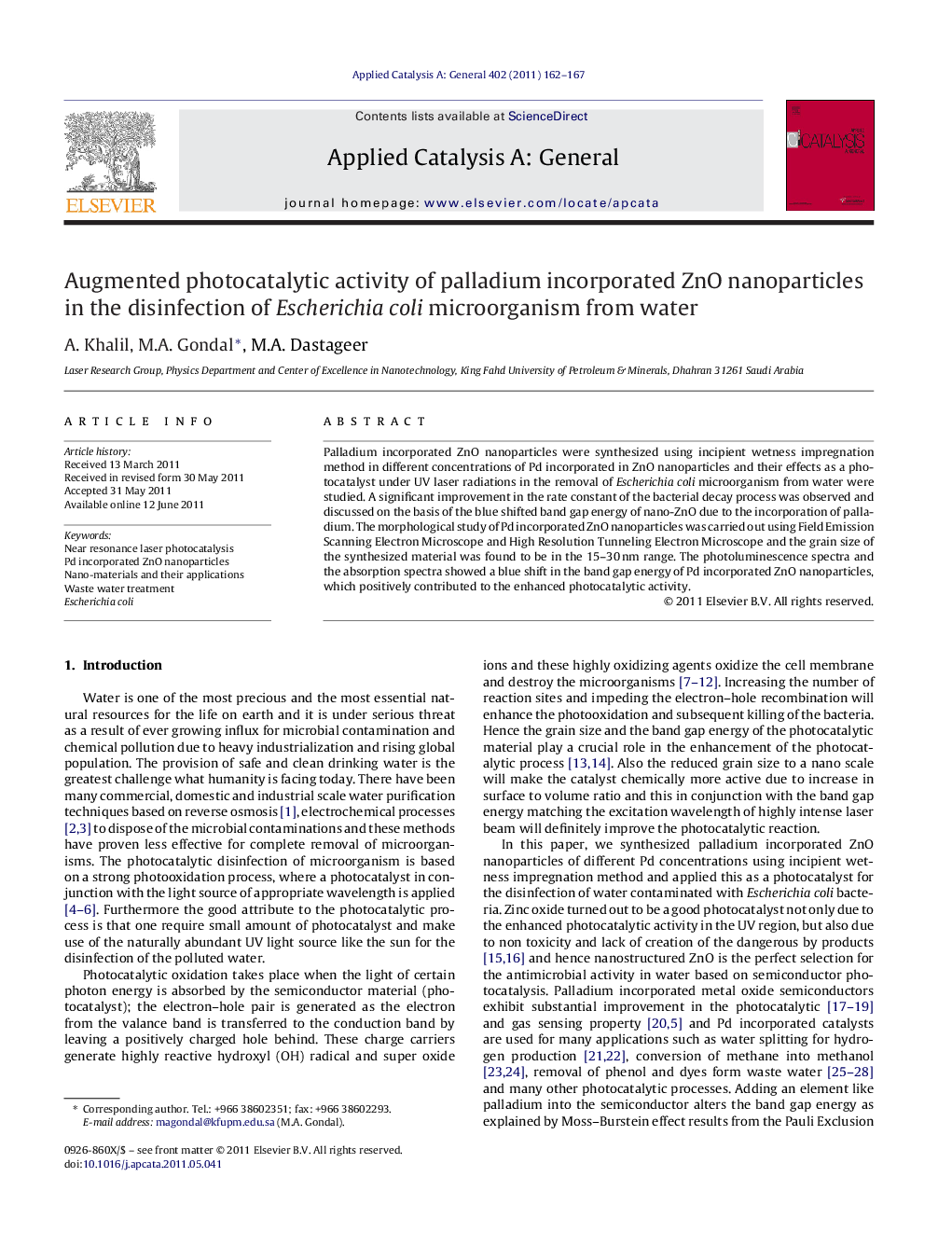| کد مقاله | کد نشریه | سال انتشار | مقاله انگلیسی | نسخه تمام متن |
|---|---|---|---|---|
| 41252 | 45882 | 2011 | 6 صفحه PDF | دانلود رایگان |

Palladium incorporated ZnO nanoparticles were synthesized using incipient wetness impregnation method in different concentrations of Pd incorporated in ZnO nanoparticles and their effects as a photocatalyst under UV laser radiations in the removal of Escherichia coli microorganism from water were studied. A significant improvement in the rate constant of the bacterial decay process was observed and discussed on the basis of the blue shifted band gap energy of nano-ZnO due to the incorporation of palladium. The morphological study of Pd incorporated ZnO nanoparticles was carried out using Field Emission Scanning Electron Microscope and High Resolution Tunneling Electron Microscope and the grain size of the synthesized material was found to be in the 15–30 nm range. The photoluminescence spectra and the absorption spectra showed a blue shift in the band gap energy of Pd incorporated ZnO nanoparticles, which positively contributed to the enhanced photocatalytic activity.
Figure optionsDownload high-quality image (176 K)Download as PowerPoint slideHighlights
► Nano palladium doped ZnO using incipient wetness impregnation method was synthesized.
► This photo-catalyst was applied for the efficient removal of E. coli from water.
► Significant improvement in the rate constant of the bacterial decay process was observed.
► The grain size of palladium doped ZnO measured with FESEM and HRTEM was in the 15–30 nm range.
Journal: Applied Catalysis A: General - Volume 402, Issues 1–2, 31 July 2011, Pages 162–167